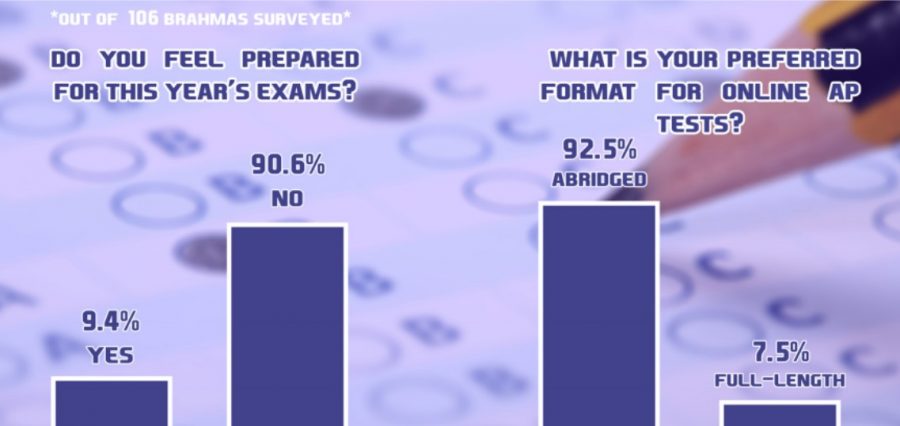Concerns raised over AP
After trying out a virtual format last May, the College Board will once again administer online AP Exams in addition to its regular in-seat exams to accommodate schools offering both in-person and online learning. However, the changes made to this year’s exam have sparked some controversy among Diamond Bar High School students and staff.
While usual AP exams are about three hours long, and consist of a multiple choice and free response section, last year’s exams were all online due to school closures. The exam also followed an abridged format and shortened curriculum, with 45-minute FRQ-only exams administered.
The opinion among many students and teachers was that these exams didn’t properly test the full scope of what students had learned in neither curriculum nor application.
“I don’t really feel that it [last year’s exams] measured what students were able to learn for the year, but do understand their attempt to make more students successful under difficult circumstances,” AP Biology teacher Kerry Iwanaga said via email.
Regardless, students took the exams in order to get college credit for their courses. Almost all colleges that normally give credit for AP tests agreed to accept 2020 exam scores.
“I feel like it didn’t test everything that we learned over the course of the year. That being said, there was no doubt in my mind that I would take the test because I needed the AP credit,” senior Luke Zhou said.
This year, now that some schools have returned to in-person learning and the curriculum won’t be cut short by sudden closures, College Board has returned the exams to their full length and original format. Additionally, they will add more testing dates and times to accommodate schools’ varying schedules.
Having an abundance of testing options will be vital this year, as SAT subject tests have been canceled, placing all the more emphasis on the importance of AP scores in the college admissions process.
However, because some students will be taking the exam online while others work in-person, most students foresee widespread cheating among those at home.
“Those at home would have the advantage of having content and cheat sheets on hand,” junior Kristin Joe said via Instagram.
The opinion among teachers is split. While some, like Iwanaga, think that the lack of security for online exams will facilitate cheating, others are optimistic that students will maintain their integrity.
“There is so little time to cheat, and your test requires so much of your attention, I don’t foresee it being that much of an issue, to be honest,” AP English Literature and Composition teacher Alexis Feix said.
Additionally, the discrepancy between curricula across different schools has increased dramatically this year, with some teachers struggling to cover all the necessary content in shorter school days.
Teachers like Iwanaga and AP English Literature and Composition teacher Connie Chen both said that they’ve had difficulty with lesson pacing to cover all of the required content before May.
“I feel the greatest difficulty has been pacing the curriculum, given the nature of distance learning and the flexibility it demands,” Chen said.
Students like Joe are concerned not only about covering the full scope of content, but also about having time to practice for exams.
“I feel like learning this year has been more content based when it would really be more beneficial to refine the actual writing process and practice more with AP classroom,” Joe said.
Nonetheless, much is still subject to change, and it’s yet to be determined whether DBHS will be one of the schools allowing its pupils to test on campus.
Your donation will support the student journalists of Diamond Bar High School. Your contribution will allow us to purchase equipment and cover our annual website hosting costs.









